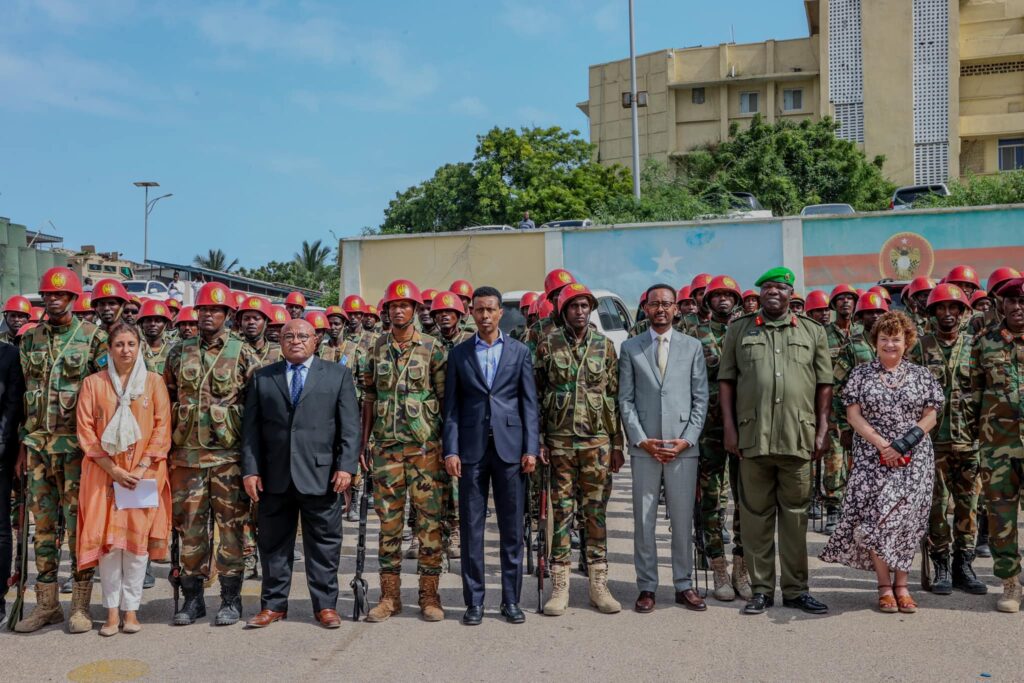As the African Union Transition Mission in Somalia (Atmis) approaches its conclusion, a significant shift in the political landscape is taking place. The Somali government has made its stance unequivocally clear: the presence of Ethiopian troops is no longer acceptable. This assertive declaration marks a pivotal moment for Somalia as it seeks to reclaim its sovereignty and territorial integrity while navigating complex regional dynamics.
The Somali leadership has emphasized that Ethiopian forces must vacate the country entirely and dismantle their bases. This demand stems from a growing sentiment among the Somali people that Ethiopia poses an existential threat to their sovereignty. The historical context of Ethiopian involvement in Somalia, often perceived as interference rather than assistance, has fostered deep-seated mistrust. The Somali populace is resolute in their stance: they will not tolerate external forces dictating their national security or political landscape.
In stark contrast to Ethiopian troops, Somalia has expressed openness to the presence of military personnel from neighbouring countries like Kenya, Uganda, Burundi, Egypt, Eriteria, and Djibouti in any future missions. This willingness underscores a preference for regional cooperation over what is perceived as an occupation. The Somali government’s message is clear: support from neighbouring nations is welcome, but the presence of Ethiopian troops is not.
The Somali people have also voiced strong objections against what they view as Ethiopia’s actions undermining their sovereignty. Reports of Ethiopia smuggling illegal weapons into Somalia and arming tribal militias have raised alarms within the nation. Furthermore, allegations of Ethiopia providing scholarships to corrupt regional leaders and training personnel to challenge the federal government have only intensified fears of destabilization orchestrated from within.
The African Union (AU) and the United Nations (UN) have been called upon to respect Somalia’s sovereignty and heed the voices of its people. Somalia’s leaders have issued a stern warning: if the international community continues to support the presence of Ethiopian troops, it risks violating Somalia’s territorial integrity. This is not merely a political statement; it reflects a growing determination among Somalis to reclaim control over their nation’s future.
The message to the AU, UN, and any nations advocating for the continued presence of Ethiopian forces is unmistakable: Somalia is a sovereign state, and the patience of its people is wearing thin. If Ethiopian troops remain beyond the end of the Atmis mission, they will be viewed as an occupying force. The Somali people have made it clear that they will have no choice but to respond with force to expel any troops that disregard their sovereignty.
This situation represents a critical juncture for Somalia and its international partners. The Somali leadership is urging the global community to align with their vision of a sovereign Somalia, free from external interference. The resolve of the Somali people should not be underestimated; they are prepared to defend their rights and their land against any perceived threats.
As the Atmis mission concludes, the world is watching closely. Will the international community respect Somalia’s call for sovereignty, or will it persist in a course that could lead to further conflict and instability? The coming months will be crucial in determining the future of Somalia, its relationships with neighbouring countries, and its quest for lasting peace and security. The Somali narrative is evolving, and the international community must take heed of the clear and final message being sent from the heart of the nation.
By: Alain Askar


